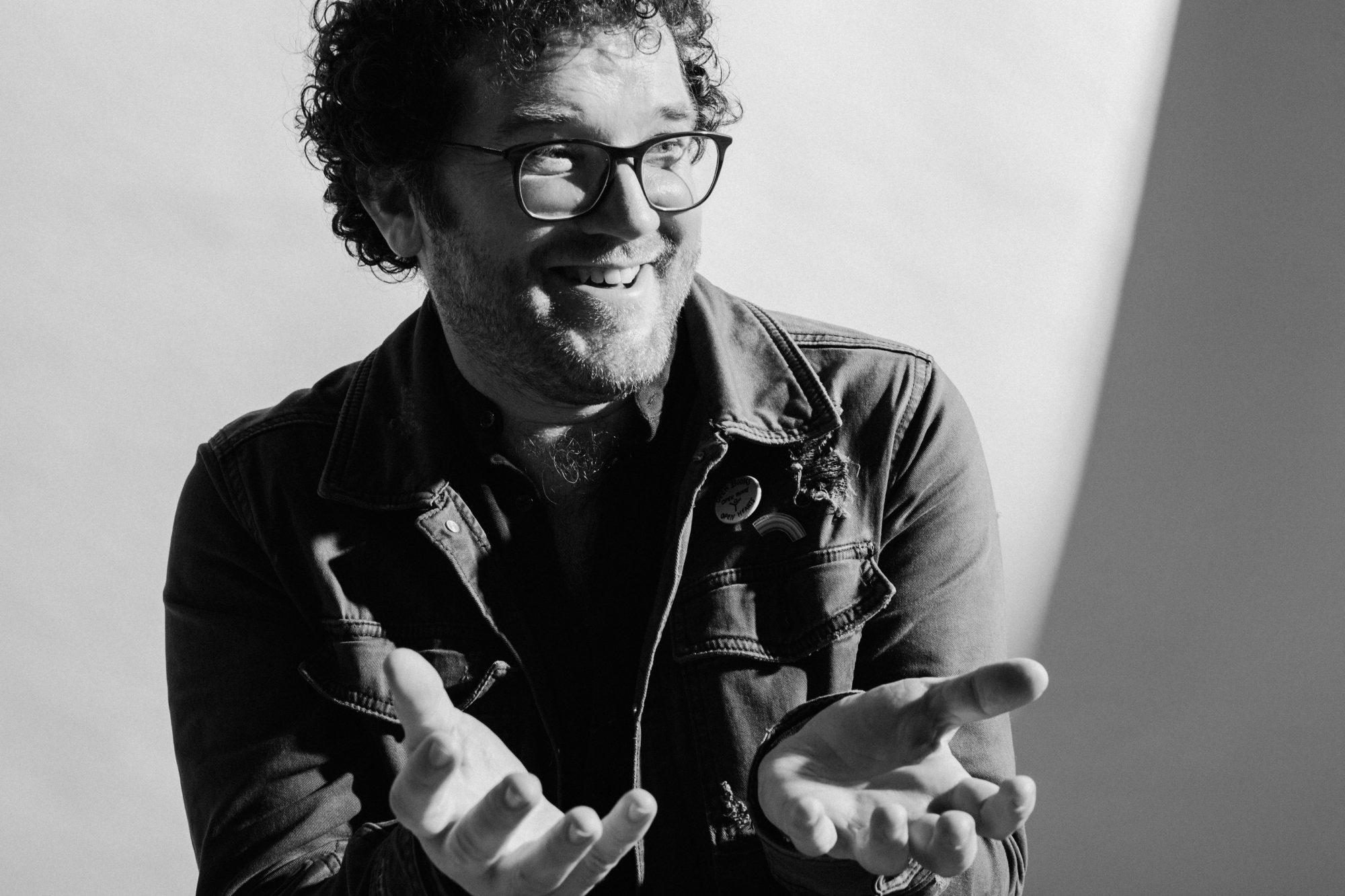In the early days of the pandemic, when health officials were advising people to sing Happy Birthday twice while washing their hands, poet and theologian Pádraig Ó Tuama knew there had to be something better to recite. So he started scrubbing along to W. B. Yeats’s poem To a Child Dancing in the Wind. “That lasted the right amount of time — and it’s much nicer to recite to yourself,” he says, laughing.
As a gay man growing up Catholic in conflict-ridden Northern Ireland, Ó Tuama turned to poetry as his language of survival. “It never occurred to me that I might want to think about this as a career,” he recalls. “It was so much more important than a career; it was a way of life.” Now, as a critically acclaimed poet and the host of On Being Studios’ Poetry Unbound podcast, Ó Tuama has embraced poetry as his vocation.
You may unsubscribe from any of our newsletters at any time.
Behind Poetry Unbound is a radical vision for today’s hurried world: that readers will pause twice a week and slow down long enough to listen to poetry. Each episode runs about 15 minutes and unfolds like a sacred ritual, with Ó Tuama’s calming voice coming together with meditative music to enhance the contemplative feel. He always begins with a reading of a chosen poem, and then moves listeners into a short personal reflection before closing with a second reading. It’s a remarkably simple approach, and therein lies its draw: listeners feel welcomed into the space of a single poem, with Ó Tuama as their gentle and generous host.
“The idea is that people, with a bit of company, are stepping into a room and looking around,” he says, indulging in the metaphor. By the end of each episode, the listener’s glance around the room has turned up some interesting clues, whether that’s some background into the life of the poet or a technical feature of the poem.
More on Broadview:
- Oldyssey puts a 21-century twist on pen pals with online French meetups
- How therapeutic clowning injects humour for a different kind of healing
- Marilynne Robinson’s new novel explores an impossible love
One of the joys of listening to the program is that Ó Tuama uses ordinary language to describe poetic forms and styles. He laments how the education system has made poetry feel intimidating to lots of folks. “I’m so saddened,” he reflects, “by how many people have been taught that a poem has barbs or that it shouts out in advance, ‘You’re going to feel stupid until you get me!’”
As the former leader of Northern Ireland’s Corrymeela Community, an ecumenical Christian organization seeking to repair a fractured nation, he sees hospitality as integral to his work in conflict mediation and art. His aim as a podcast host is to open up a poem for his listeners. Often this means Ó Tuama takes personal risks, making himself vulnerable by sharing snapshots from his own life — his insomniac practice, for example, of reading poetry to calm himself on sleepless nights.
But he also aims to practise hospitality toward the poem by respecting its mystery, or what he refers to as its “unknowability.” He resists offering any final analysis, although as someone doing a PhD in poetry and prayer he has the tools for more formal readings. Instead, he says, he begins with, “Here’s what I’m thinking about today.”
Poetry Unbound values diversity and representation, and as Ó Tuama is a white European man, this kind of approach isn’t without its challenges. In the second season, he treated won’t you celebrate with me by the African American poet Lucille Clifton. Speaking about her life as a Black woman, Clifton asks her readers to “come celebrate / with me that everyday / something has tried to kill me / and has failed.” Rather than imagining himself as being on her side, Ó Tuama asked how often he hasn’t been. That kind of honesty is a hallmark of the show — and why, as it enters its third season this spring, Poetry Unbound will continue to offer something meaningful in these unsettled times.
CORRECTION: A previous version of this story stated that each episode of Poetry Unbound is 12 minutes, whereas the true average length is closer to 15. This version has been updated.
***
Julie McGonegal is a writer and editor in Barrie, Ont.
This piece first appeared in Broadview’s March 2021 issue with the title “Personable poetics.”













